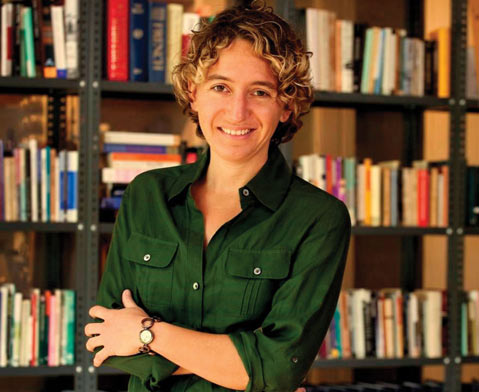To Err Is Human
Author Kathryn Schulz Delves into the History and Necessity of Being Wrong

Why is it so hard to admit you are wrong? Perhaps because being wrong conjures feeling of shame — or at least embarrassment. Compare that to the delightful righteousness one feels at being right, and who would want to admit error? But maybe being wrong is actually right. Or so journalist Kathryn Schulz puts forth in her book Being Wrong: Adventures in the Margin of Error.
Tracing error from its philosophical to scientific to psychological roots, Schulz makes a compelling argument for the virtues of wrongness. In fact, error, she claims, is the essence of what makes us better humans. Last week I spoke with Schulz over the phone from her home in New York about her motivation for writing her book, how wrongness permeates every aspect of our lives, from relationships to our legal system, and what’s it like having Bill Clinton as a fan.
How did the idea for your book arise? I was working on all these different stories that had nothing to do with each other on the surface. One was about a political event in Dallas, Texas; one was about a psychologist at Yale; one was a personal essay, etc. And I was coming home one day, and literally, I had this epiphany where I realized that all of these different pieces I was working on … really did have something in common, which was that they were all about our relationship to being wrong. And I knew right away that that was a book and I want to write it — which was totally weird because five minutes earlier I didn’t have plans to write any book. (Laughs.)
Error is prevalent in every aspect of life, as your book shows, but honestly, I never considered it complex. Just simply, you’re wrong or you’re right. That’s exactly why I knew instantly that it was worth writing about, that it was a book. Beside the fact that it plays a role in every aspect of life, it is totally omnipresent, and yet we never isolate it as a category and think about it. And that’s what excited me about the subject. Here’s this thing that affects us so radically in our different domains of life — personally, professionally, in the law, politics — and yet somehow we have never separated it out and looked at it.
Since the book was published, do people ask you for advice on how to deal with people who are wrong? I actually get asked a lot more about how to deal with people who think they are always right. It’s something I can have conversations about, but I didn’t set out to write a self-help book, and despite thinking for many years about wrongness, I really wrote it as an intellectual history of error. Each situation is so individual and dependent on why a person feels defensive about being wrong … so in that sense, there is no stock answer. But I do think humor helps a lot, listening helps a lot … and the first step is to start registering the impulse in ourselves.
How has the reception been? I’ve been pleasantly shocked at every stage of the game. I hear a remarkably personal response from people — both individually and from corporations who recognize they have an error problem and that it might be good to talk about it. For me personally, by far the most astonishing and exciting reaction from a reader came from Bill Clinton, of all people, who has taken a liking to the book.
4•1•1
Kathryn Schulz will discuss her book Being Wrong: Adventures in the Margin of Error on Monday, January 23, 8 p.m., at UCSB’s Campbell Hall. For tickets and information, call 893-3535 or visit artsandlectures.sa.ucsb.edu



